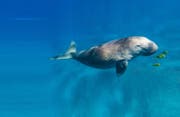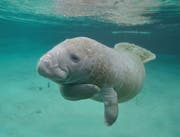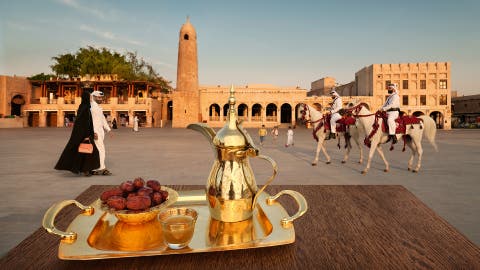The world’s second largest population of dugongs live in Qatar, with herds of 600-700 dugongs recorded in Qatar’s waters just recently. Dugongs may live in the sea, but they are not really fish. They are marine mammals, and it’s believed they made their first appearance in the waters of the Arabia Gulf approximately 7,500 years ago.
Dugongs are grey in colour and may grow up to over 300 feet in length with an average body weight of 550 kg. They have flippers that look like paddles and a horizontal tail that is called a fluke, so they can easily move around in the water. They have a bristled snout and strong upper lips so they can easily uproot the entire seagrass plant to eat. Dugongs have small eyes, so their vision is limited, but their hearing is sharp and they can communicate using chirps and squeaks that travel through water. Their life expectancy, on average, is 70 years.











